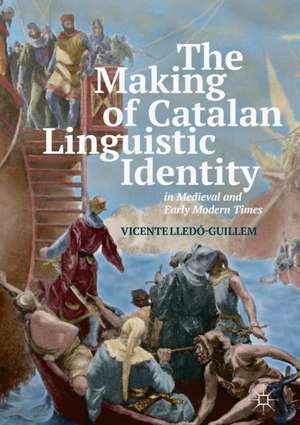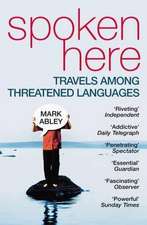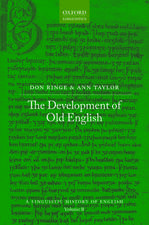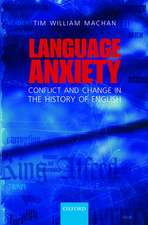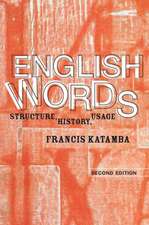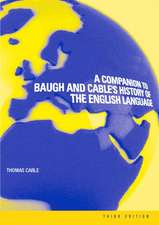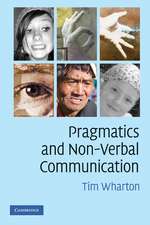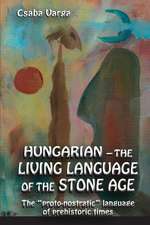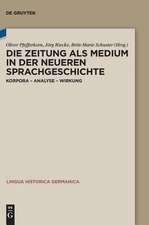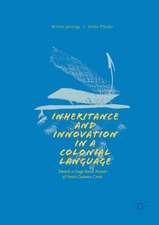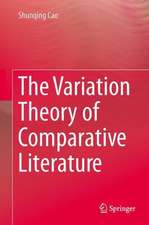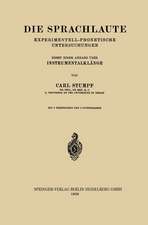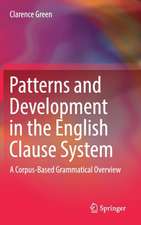The Making of Catalan Linguistic Identity in Medieval and Early Modern Times
Autor Vicente Lledó-Guillemen Limba Engleză Hardback – 20 feb 2018
The historical relationship between the Catalan and Occitan languages had a definitive impact on the linguistic identity of the powerful Crown of Aragon and the emergent Spanish Empire. Drawing upon a wealth of historical documents, linguistic treatises and literary texts, this book offers fresh insights into the political and cultural forces that shaped national identities in the Iberian Peninsula and, consequently, neighboring areas of the Mediterranean during the Middle Ages and the Early Modern Period. The innovative textual approach taken in these pages exposes the multifaceted ways in which the boundaries between the region’s most prestigious languages were contested, and demonstrates how linguistic identities were linked to ongoing struggles for political power. As the analysis reveals, the ideological construction of Occitan would play a crucial role in the construction of a unified Catalan, and Catalan would, in turn, give rise to a fervent debate around ‘Spanish’ language that has endured through the present day. This book will appeal to students and scholars of historical linguistics, sociolinguistics, Hispanic linguistics, Catalan language and linguistics, anthropological linguistics, Early Modern literature and culture, and the history of the Mediterranean.
| Toate formatele și edițiile | Preț | Express |
|---|---|---|
| Paperback (1) | 580.17 lei 6-8 săpt. | |
| Springer International Publishing – 6 iun 2019 | 580.17 lei 6-8 săpt. | |
| Hardback (1) | 626.38 lei 3-5 săpt. | +20.98 lei 7-13 zile |
| Springer International Publishing – 20 feb 2018 | 626.38 lei 3-5 săpt. | +20.98 lei 7-13 zile |
Preț: 626.38 lei
Preț vechi: 688.33 lei
-9% Nou
Puncte Express: 940
Preț estimativ în valută:
119.86€ • 128.17$ • 99.94£
119.86€ • 128.17$ • 99.94£
Carte disponibilă
Livrare economică 27 martie-10 aprilie
Livrare express 13-19 martie pentru 30.97 lei
Preluare comenzi: 021 569.72.76
Specificații
ISBN-13: 9783319720791
ISBN-10: 3319720791
Pagini: 292
Ilustrații: VIII, 250 p.
Dimensiuni: 148 x 210 x 25 mm
Greutate: 0.46 kg
Ediția:1st ed. 2018
Editura: Springer International Publishing
Colecția Palgrave Macmillan
Locul publicării:Cham, Switzerland
ISBN-10: 3319720791
Pagini: 292
Ilustrații: VIII, 250 p.
Dimensiuni: 148 x 210 x 25 mm
Greutate: 0.46 kg
Ediția:1st ed. 2018
Editura: Springer International Publishing
Colecția Palgrave Macmillan
Locul publicării:Cham, Switzerland
Cuprins
Chapter 1: Introduction.- Part I: The political use of the Occitan language by the Catalan-Aragonese monarchy; Chapter 2: The Rise of Catalan as a Royal Language: Bernat Desclot’s account of the Battle of Castellammare in response to Bernat d’Auriac’s sirventés; Chapter 3: The politics of the linguistic discontinuity of Occitan versus the continuity of Catalan: the Sermó by Ramon Muntaner.- Chapter 4: Catalan and Occitan versus Aragonese: the poetic ceremony following the Coronation of Alfonso the Benign in Muntaner’s Crònica.- Part II: The interpretation of the Catalan-Occitan relationship in the construction of the Spanish Empire.- Chapter 5: The historical (dis)continuity of the Catalan language and the linguistic creation of the Spanish Empire: Ausiàs March in the Early Modern Period.- Chapter 6: A unitary Catalan-Occitan language in the Early Modern Period: the exaltation of Apitxat Valencian.- Chapter 7: Conclusion.
Recenzii
“I find Lledó-Guillem‘s monograph to be brilliant, innovative, and groundbreaking. … this book is a must-have to both students and scholars in Medieval and Early Modern political, cultural, and intellectual history, European studies, Romance languages, historical sociolinguistics, and linguistic anthropology. It is a work that will be referenced and cited for years to come.” (Josef Fioretta, Scripta, Issue 11, June, 2018)
Notă biografică
Vicente Lledó-Guillem is Professor of Spanish and Catalan at Hofstra University, New York. His primary field of research is the political, ideological, and cultural history of the Spanish and Catalan languages. He is the author of Literatura o imperio: la construcción de las lenguas castellana y catalana en la España renacentista (2008).
Caracteristici
Provides an innovative study of Romance languages in the Medieval and Early Modern worlds Demonstrates the political and ideological factors that influenced interpretations of the relationship between Catalan and Occitan Sheds new light on Medieval and Early Modern linguistic historiography
